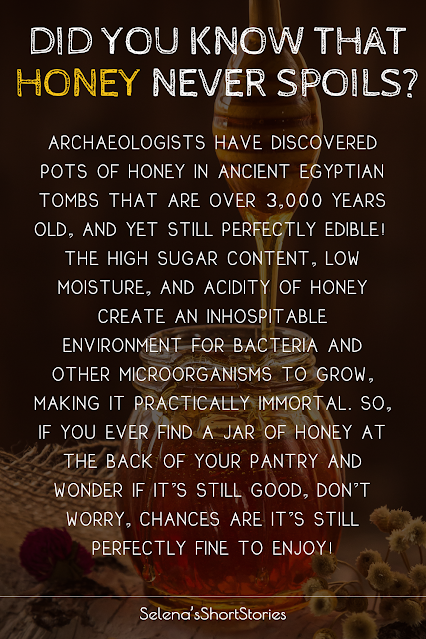When it comes to natural wonders, few can surpass the extraordinary longevity of honey. From ancient civilizations to modern kitchens, honey has stood the test of time, remaining edible and delicious for centuries. Join us as we delve into the fascinating world of honey and uncover the secret behind its immortal quality.
The Indestructible Elixir of Ancient Times:
Imagine uncovering a jar of honey in an ancient Egyptian tomb, only to discover that it is over three millennia old, yet still remarkably edible. Archaeologists have made such remarkable discoveries, shedding light on honey's astonishing ability to resist spoiling. The magical properties that keep honey edible for such extended periods lie in its unique composition.
The Science Behind Honey's Timelessness:
Honey's longevity can be attributed to its high sugar content, low moisture levels, and natural acidity. These factors create an inhospitable environment for bacteria and microorganisms, effectively preventing spoilage. The incredibly low water content in honey inhibits the growth of most organisms, as they require moisture to survive and thrive.
Sugar's Preservation Power:
Sugar acts as a natural preservative by altering the cellular structure of bacteria. The high sugar content of honey effectively dehydrates bacteria, preventing their growth and spoiling effects. This osmotic effect, combined with low water availability, makes honey extremely resistant to microbial activity.
Low pH: An Unsuitable Environment for Spoilage:
In addition to its high sugar content, honey possesses a low pH level between 3.2 and 4.5. This natural acidity further inhibits bacterial growth, as most microorganisms struggle to thrive in such conditions. The combination of low pH and high sugar content makes honey a formidable barrier against spoilage.
Honey in the Modern World:
Even in today's fast-paced and ever-changing society, the timeless qualities of honey continue to captivate and impress. While modern knowledge and techniques have expanded our ability to preserve food, honey remains a reliable and safe option for long-term storage.
Enjoying Honey with Peace of Mind:
Have you ever found a forgotten jar of honey at the back of your pantry and wondered if it was still good? Fear not! The chances are high that it is still perfectly fine to enjoy. Honey's remarkable natural defenses and longevity make it a wise choice for those seeking a long-lasting and delicious treat.
Conclusion:
Honey's ability to remain edible for thousands of years is a testament to the magic of nature. Its high sugar content, low moisture, and natural acidity create an inhospitable environment for bacteria and microorganisms, making it truly immortal. Whether indulging in it as a sweetener or appreciating it for its remarkable history, honey stands as a symbol of endurance and sustenance throughout the ages. So, the next time you reach for a jar of honey, relish in the knowledge that you are enjoying a culinary treasure, which will never spoil.
.png)

Comments
Post a Comment